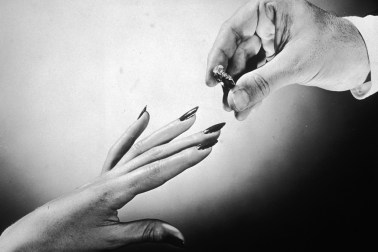Insomnia is a self-fulfilling prophecy. When, for example, I made up my mind that I was going to review the BBC’s new series Sleep Clinic (BBC1, Monday), I knew that later that night I would have enormous difficulties getting to sleep.
This is one of the horrible tricks we insomniacs play on ourselves. We’ll have had maybe four or five good nights’ sleep in a row and the nasty little voice in our heads will go, ‘Well, you’re not seriously expecting to get another good night, are you?’ To which our nice, rational, sensible voice will reply, ‘Well, why not? I’ve been doing pretty well so far. I’m quite tired. I haven’t got anything major to worry about at the moment…’ ‘Oh, haven’t you? Then let me give you something to worry about. Why don’t I just plant in your brain the nagging thought that no matter hard you try you won’t get to sleep tonight, just because you won’t?’ And, sure enough, the evil voice will get his way.
Only once you’ve experienced insomnia can you properly appreciate what a miracle sleep is. Annoying people like my wife, who can drop off within seconds of turning the lights out, imagine that it’s simply a question of coaxing your brain into the right state of mind. In fact, though, it’s the exact opposite of that. Sleep is a wholly involuntary process, which is to say you can’t think yourself to sleep. The more you lie there willing your brain into somniferousness, the less likely it is that Morpheus will descend.
Anyway, because Sleep Clinic put bad thoughts into my head I had to whack myself out with a Zolpidem and I only ever take sleeping pills in extremis because I hate the way you spend the whole of the next day feeling slightly fuzzy and monged. And what did I get in return for my troubles? A programme that really was barely worth watching.
OK, so they’ve got access to the sleep disorder clinic at Papworth Hospital and people with all sorts of strange problems. In the opening episode, for example, we met a girl whose dreams were so vivid she kept waking up and giving her poor, half-asleep boyfriend orders like ‘get rid of all those ponies’. Then we met a man who, several times every night, made growling noises, or announced the weather, or spoke as if he was fitting someone up for a new jacket.
But I’ve just told you the only interesting part of the programme. Everything else was pure filler. As if aware that it wasn’t quite delivering, it insisted on compensating with an infuriatingly jaunty voiceover where, instead of having a pet the couple were described as having ‘a lovely little doggy’, and where, instead of taking medication, one of the patients was prescribed ‘tummy pills’. Can we not even watch medical documentaries now without being treated as if we are halfwits? Apparently not.
The Wild West — Custer’s Last Stand (BBC1, Friday) promised at the beginning that it was going to tell us something completely counterintuitive about the Battle of the Little Bighorn — that in fact General Custer’s tactics were quite sound and that he was on the verge of winning a major victory.
After this, though, the programme quickly conceded that none of the historical facts remotely supported this thesis and settled down into telling the story, plain and simple, using talking heads, including a splendidly beautiful descendant of Sitting Bull called Ron His Horse Is Thunder and a bloodily realistic dramatic construction featuring a cast led by Toby Stephens as General Custer.
It must be an awful thing being led to certain death by an officer you realise is a total prat but whose orders you cannot disobey. Pity poor Mitch Bouyer, the scout who pointed out to Custer that the village he was about to attack was bigger than any he had seen in 30 years among the Indians, only to be completely ignored. At this point Bouyer started giving away his possessions because he knew he was going to die, as did all Custer’s Crow scouts, who began changing out of their white man’s clothing and back into redskin. Custer allowed them to escape, but not Bouyer who was hacked to death and quite possibly mutilated by Indians whom Sitting Bull had offered a 100-pony bounty for Bouyer’s head.
Gosh, they don’t half exert a grisly fascination, these stories about armies of white men being wiped out by native hordes. And they always seem to involve the same basic mistakes: assuming your enemy are stupid, useless savages; cockily dividing your force; failing to heed local, expert advice. I wonder how familiar Lord Chelmsford was with Custer’s story when he helped engineer our own Little Bighorn at Isandlwana only two and half years later.






Comments